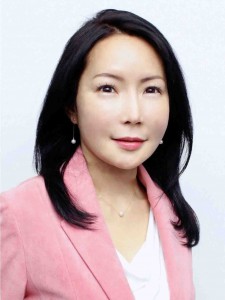[By Mika Tsutsumi, journalist]
After former U.S. President Barack Obama shattered the illusions of his supporters that he would bring about change as he had promised in his inauguration speech, American voters chose Donald Trump as the new president in the hope that changes would come this time around.
The new administration has begun, with Trump pledging in his inaugural address to transfer the political power controlled by a small group of wealthy people in Washington and give it back to the people to “make America great again,” filling people in and outside the country with hopes and worries.
He often uses the term “America First,” which is interpreted by Japanese media as protectionism or isolationism. But it practically means he is prioritizing domestic interests.
By reviewing multinational frameworks such as the Trans-Pacific Partnership agreement and the North American Free Trade Agreement, Trump is trying to put a stop to global capitalism which the U.S. has led for the past decades. In the U.S., as a result of global capitalism which has gone too far, jobs are taken away by developing countries with low wages, domestic industries are destroyed and global businesses are moving their headquarters to tax havens to avoid paying taxes in the country.
Eight years ago, Obama became president by pledging to put an end to this vicious cycle. But later he reversed his promises, because he had been receiving large amounts of donations from global conglomerates and the financial industry. Many American people chose Trump, who is inexperienced in politics but has routinely denounced special interests, because they realized that nothing changed even after the Democratic Party took over the administration from the Republicans and a white president was replaced by a black president, and that the root of the problem lies in the fact that politics have degraded into a tradable product.
And now Trump is working to bring back companies and production to America through such measures as introducing tax incentives for firms which moved their manufacturing base back to the country or imposing high taxes on companies which sell products made abroad at low costs.
Tackling vested interests
The revolving door between business and politics, which has been spinning at an unprecedented rate under the Obama administration, is finally subject to reform, as Trump signed an executive order banning lobbying from administration officials for five years.
The health care conglomerates are hit by Trump’s signing of an executive order within hours of taking office to dismantle the Affordable Care Act, widely known as Obamacare.
The pharmaceuticals industry, which enjoyed a close relationship with Washington for a long time, is for the first time facing questions over the safety of vaccines and unreasonably high drug prices.
Mainstream media defeated
From the very first day of presidency, Trump gave the cold shoulder to major U.S. news organizations like CNN and The New York Times, which publicly supported Hillary Clinton during the presidential election campaign. He is going around the mainstream media by refusing to answer their questions and instead making public policy announcements directly through social media, putting them in the most embarrassing situation they have ever experienced.
Their attack on Trump’s character is becoming severer, and Japanese mainstream media and experts who depend on them as information sources just follow suit, contributing to increasing Japanese people’s psychological aversion toward Trump.
A political scientist who is known as a liberal and had predicted that Clinton would win said to me: “A dictator like Trump who has character problems destroys democracy. I’m sure the world will head in an extremely bad direction from now on.”
But is that really the case?
<profile> A native of Tokyo, Mika Tsutsumi became a journalist after working for the United Nations and a securities firm. Her best-selling books include “Rupo Hinkon Taikoku America (America the Poverty Superpower)” and “Kabushiki gaisha Hinkon Taikoku America (America the Corporate Poverty Superpower)”.


